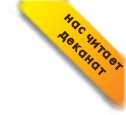Personality/Compatibility
Personality is the key to compatibility. Most operating systems, such as DOS, are limited to a single personality. DOS can only run DOS programs. However, Windows NT was designed to support multiple simultaneous personalities. When Microsoft first began working on NT, they planned that it would support the OS/2 Presentation Manager interface as its primary personality. However, as the project continued, and the success of Windows grew, the Windows interface became the primary personality. In addition, Windows NT supports a POSIX personality, an OS/2 personality, and a DOS/Windows personality. Additional personalities, such as a full UNIX personality can easily be added.
Localization
Microsoft recognizes the value and importance of products that integrate into the global marketplace. Windows NT is available in localized versions for Brazilian, Chinese, Danish, Dutch, Finnish, French, German, Italian, Japanese, Korean, Norwegian, Portuguese, Russian, Spanish,' and Swedish. In each of these versions, Microsoft has taken efforts to ensure that NT not only communicates in the particular language, but also employs standard idiom, uses correct punctuation in lists, dates, time, and numerical and currency output.
To support this localization, Windows NT uses the Unicode standard instead of the ASCII
standard for representing characters. While the ASCII standard is popular in the United States, it
lacks the capability to properly handle many of the characters needed in the international
computing world. Unicode is a standard developed by a consortium of industry leaders,
including Microsoft, Lotus, IBM, and Borland. While ASCII recognizes only 8-bit characters,
meaning that a code-set can only contain 256 characters, the Unicode code-set is based on 16-
bits, which means that it can represent 65,536 different characters.
NOTE:
Windows 95 also supports Unicode. However, although Windows NT uses Unicode exclusively for storing internal data, Windows 95 still uses a substantial amount of non-Unicode fields in order to maintain backward compatibility.
NOTE:
Even the next generation of the Mac OS, code named Copland, will support the Unicode standard.
